How significant and useful is local SEO strategy for businesses?
Local search optimization is essential because local information is the topic of 46% of all Google queries. Local search is quite effective for small companies. Smaller companies that conduct their operations locally rather than nationally need local SEO.
Your business may be losing out on local customers if it isn’t optimized for local search. In essence, if you do want your business to grow and expand, local SEO is essential.
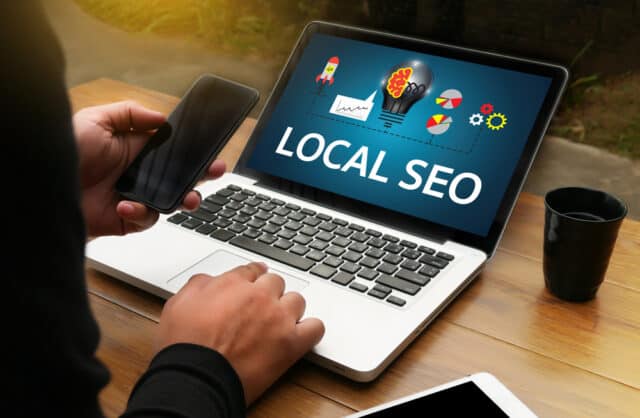
This article will show you how to expand your clientele by reaching people who conduct local searches before making a purchase.
Local SEO prioritizes showing up on SERPs in a particular location, while national SEO places more of an emphasis on ranking in nationwide searches. This tactic depends on informing potential clients and customers in your area about your company’s identity, goods, and services.
As a result of the strategy being more pertinent to your local consumer base, optimizing your local SEO results in increased website visitors, leads, and engagements. Think of this focused approach as a strategy to enable you to compete more successfully with bigger, better-funded national corporations.
Any online marketing approach should include local search optimization. If your site isn’t optimized for local search, you may be missing out on a lot of visits. When clients look for local businesses like yours, local SEO helps you come up.
Local SEO: What is it?
Making adjustments to your website to improve its position in search results when visitors enter location-specific keywords is known as local search engine optimization (LSEO).
Local SEO is crucial because you want to appear first whenever anyone searches for something near your actual location.
If your website ranks well enough in Google Maps, you may also receive additional clicks. When prospective customers seek local businesses online, local search engine optimization aids in their discovery.
Your website should be optimized for local keywords and phrases as part of local SEO. If you run a restaurant, for instance, you might optimize your website for the terms “restaurant” and “near me.”
You might even tailor your website to particular towns or cities. You might optimize your webpage for “mobile phone technician near me” if you’re a mobile phone technician.
Do You Really Need a Local SEO Strategy for Your Business?
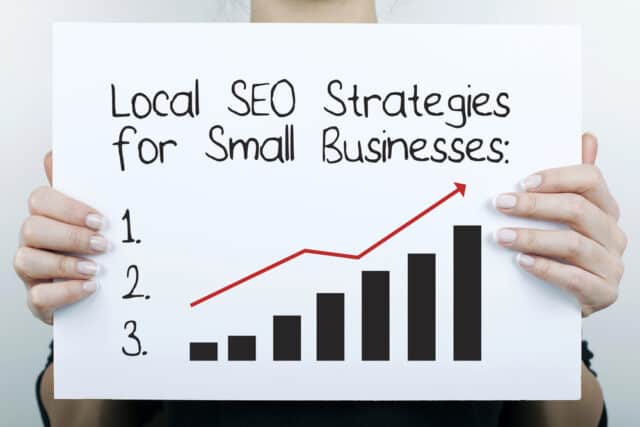
Local SEO is vital for every organization that serves a specific region. For instance, if you run a hotel in San Francisco, your website must appear high in the local search results for “hotels near me.”
Other types of organizations, however, might not require local SEO. Since your target audience is international, local SEO is probably of little value to you if you operate an online store offering products to customers all over the world.
Local SEO should be a key element of any online marketing strategy. It allows you to connect with clients in their immediate area and provides them with an incentive to do so.
Optimizing your Google My Business page, utilizing reviews and ratings from websites like Yelp as well as TripAdvisor, and obtaining listings on other local websites are all examples of local SEO strategies.
Local SEO Strategy for Businesses
- Make your website Google My Business-ready.
- Submit reviews in sites like Yelp, TripAdvisor, Foursquare, Google Maps, and others.
- Add pictures, comments, and ratings.
- Check that your name, location, contact information, and website is accurate.
- Ensure search engine optimization for your listing.
- Verify the citations and directories you are using. Link issues should be fixed.
- Boost the internal connection structures you have. Optimize your content, URLs, titles, headers, and meta descriptions.
- A mobile-friendly website is a must. Include a location section on your website. Make your material local. Get relevant backlinks.
Ensure Google My Business optimization
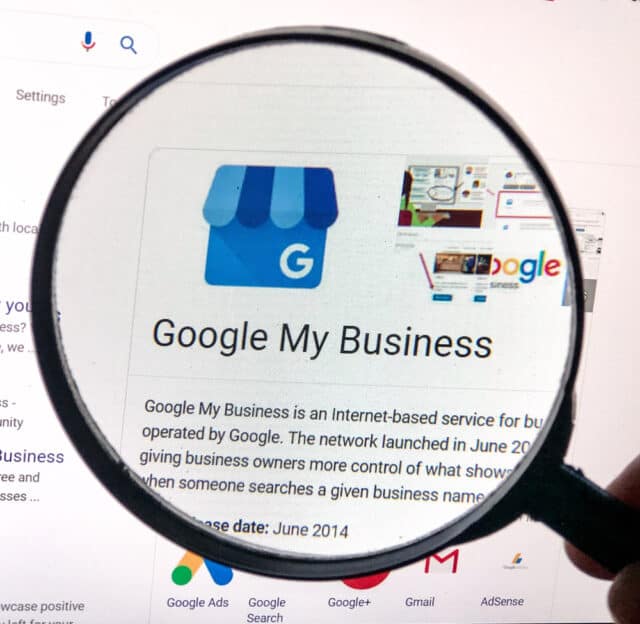
Any small business owner must have access to Google MyBusiness. They can control every element of their internet presence, including reviews, images, videos, maps, and more. Use it right away if you haven’t already!
Following are the suggestions for improving your Google My Business profile:
Add Photos
Although you might believe that adding photos is optional, chances are that if you have a website, you have already done so.
What about the photos you shot at your most recent event, though? Customers will be able to see exactly who you are and what you sell if you upload them to Google.
Optimize Your Address

Ensure that your address is recognizable and correct. Spell it properly and include information like “no parking” or “closed on Wednesdays.”
Google My Business aids in the internet discovery of businesses. You can add photographs, details about your services, and your location details after registration. In addition, you can upload videos, news articles, and other content.
You can reply back to consumer reviews to encourage them. You can respond to a reviewer’s comment with a customized message. Customers can be asked whether they want to leave a review as well. You can provide them with an URL to submit their review.
Google can verify the authenticity of your business. If you follow these steps correctly, Google Maps as well as Google Local Search might place a marker next to your name. This will not only increase your chances of attracting visitors, but will also allow you to showcase your offerings to your audience.
Before even considering calling you, your clients should check out your address and open/closed times. For consumers, having correct information is essential, especially when they are shopping for a certain item.
You can manage your internet presence across all devices with the aid of Google My Business. Information such as your location, contact information, website, photographs, reviews, ratings, and more is simple to add.
Additionally, you may make an interactive map showing the location of your company and distribute it to current and prospective consumers.
Use social media to provide updates.

Nowadays, social media is a crucial tool for enterprises. You’re losing out on potential clients if your business isn’t present on social media platforms like Facebook, Twitter, Instagram, YouTube, LinkedIn, Pinterest, Snapchat, etc.
Social media enables businesses to communicate with both present and potential clients. Promote your company by utilizing all the social media channels.
The consistency of your name, address, and phone number should be checked.
You must ensure that search engines can readily find your website. Search engine spiders can find your website thanks to your NAP, which stands for Name, Address, and Phone number.
Although there are several areas on your website where you can add this information, the page’s bottom is typically the best option. Make sure the NAP is visible on all of your website’s pages. If you have a contact form, you can also provide your NAP there .
Improve citations and directories online.
These map providers give a lot of map data to US businesses like Apple, Google, Yelp, Bing, and others. Data consistency is crucial, so make sure your citations are accurate across all the map suppliers.
You might need to revise your citation if you find inconsistencies like spelling mistakes, abbreviations, missing suite numbers, or inaccurate phone numbers. Businesses aren’t always ranked accurately by Google. You could miss out on visitors and sales if your business is wrongly displayed.
Additionally, you want to look for any duplicate listings for your company. Consider joining your nearby chamber of commerce as a final option. These groups frequently offer useful connections to nearby companies.
Run a local SEO analysis.
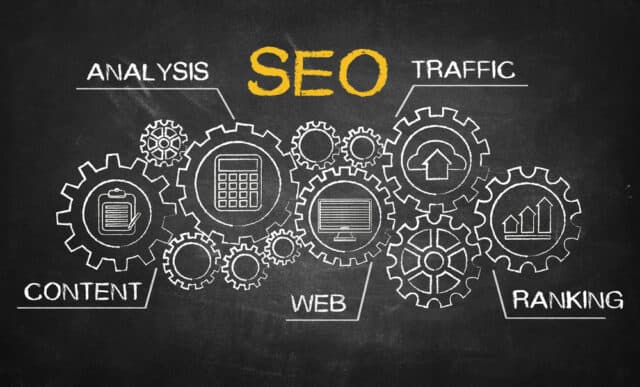
When practicing SEO, you must always keep an eye on the prize. Don’t limit yourself to performing the bare minimum. You can assess your site to learn where it stands and what remains to be improved to get it back on the right path. Here are some actions to think about:
- Verify Google Analytics first.
- Review the websites of your competitors.
How does your Google MyBusiness (GMB) appear in the search results? Is the data correct and comprehensive? Is your site crawlable and accessible according to the Google Search Console audit? Are there any mistakes that might hinder indexing?
On-page SEO Audit: Do all the requirements for a good SEO strategy apply to your website?
By conducting a citation audit, you may determine whether your citations are accurate in the top business directories. You may assess how well your website compares to that of your competitors by using competition analysis.
You can evaluate the effectiveness of your website through an audit. If not, you might want to think about changing your website.
Increase the quality of your internal connections.
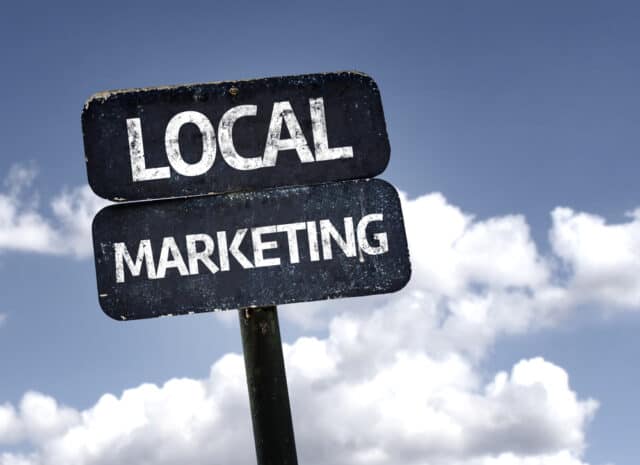
Although internal links are considerably more crucial, external links are still significant. Users can browse your website and locate what they’re looking for with the help of internal links.
This facilitates their return to your home page or other crucial pages. Additionally, it gives you a chance to appear higher in search results.
The clickable link that shows when a user hovers over a hyperlink, known as anchor text, can be used to generate internal links.
The page points should be appropriate for the anchor text. For instance, you could use “History of USA” as the anchor text if you were writing on the history of the United States. If you were describing the top attractions in New York City, you may use the phrase “Best Places in NYC.”
There are seven rules to follow while trying to strengthen your internal connecting strategy. They are:
- Ensure that your website can be crawled.
- Avoid linking to oneself.
- Include keyword-rich anchor text.
- Be pertinent.
- Keep your keywords natural.
- Add links to other pages’ content.
- Maintain simplicity.
Improve the text, meta description, and URL.
Every new blog post has the opportunity to rank well in the SERPS. When you create a new piece of content, you should consider how to make it search engine friendly. Beginning with the URL, title, headers, meta descriptions, and body, you can add high-volume keywords.
If your article is lacking in relevant keywords, try adding some. If you’re struggling to come up with geo-specific content, think about showcasing client success stories and case studies.
Your website should have location pages.

Create location pages for each of your brick-and-mortar locations if you have more than one. These sections will aid visitors in learning more about your business, including what you do, where you are located, and the services you provide.
Create an About Us page that details your company if you operate a physical storefront. Your name, address, phone number, and any other pertinent information about your business should all be listed on your About Us page.
Develop local content
Content producers are now able and incentivized to write for consumers instead of just search engines because Google is getting smarter all the time. Although writing about general subjects will draw in a larger readership, there are times when it’s more crucial for you to narrow your emphasis and produce content that speaks to a certain niche.
If you’re fortunate enough to have a sizable local following, you might also draw in a larger, national audience. Local or industry news will assist you in reaching a local audience.
A mobile-friendly website is a must.

Consumers place more and more importance on mobile devices. People use them to read news stories, view movies, play games, purchase online, and even pay their bills. On average, mobile users use their phones for 2.5 hours every week, with apps accounting for almost half of that time. Local search is, therefore, becoming more and more significant.
A mobile-friendly website is a must. On every device, your website should load quickly and be simple to read. Without a mobile-friendly website, you risk losing out on potential clients.
Obtain authoritative and relevant inbound links.
Your local SEO can benefit from inbound links. Each incoming link informs Google that your business is a reliable one, and they can help improve your Domain Authority. They can be acquired via sponsorships, alliances, guest blogging, scholarships, and other means.
Think about supporting a cause locally, having a meet-up, sponsoring an event, networking with powerful people, and forming partnerships. Additionally, have the confidence to ask influencers and partners to add you to their partner directory.
Link building can also be aided by guest posting. Positively discuss competitors in your field and offer community resources. Inbound links, social media traffic, and media attention will increase if you actively participate in community debates.
Get involved in your neighborhood
There are various ways to go about it if you want to stand out in your neighborhood. You may collaborate with a charity, fund an occasion, or simply show up in the neighborhood press as a thought leader in your field. All of them will aid in increasing your SEO and exposure.
Why not highlight a scholarship in your local area if you’re searching for a quick approach to get links? It should be pertinent and convey the proper messages about your brand to the rest of the web.
Local SEO Tools

Now that your website has been local SEO-optimized, let’s look at some practical tools you might want to employ to raise your rankings in the places that matter.
Screaming Frog
A web-crawling software program called Screaming Frog is intended to assist website owners in learning more about their sites. Multiple domains can be crawled simultaneously. All pages are viewable, results can be exported to CSV files, and reports can be generated, among other capabilities.
Additionally, it has a built-in spider that can fetch and retrieve HTML code from a specified URL automatically.
Moz Local
Moz Local is an SEO tool that aids in your online visibility. By ensuring that your company is listed on Google and Facebook, it achieves this. By doing this, you can be sure that when someone searches for your company name, your website will be listed first.
To distribute your listing across all other networks, like Yelp, Foursquare, and Instagram, Moz Local also collaborates with data aggregators.
Ahrefs
Using the link analysis tool Ahrefs, you may examine your backlinks. You are able to check which websites are linking to yours, how frequently they are doing so, as well as how many pages each website is linking to.
This is an excellent tool to help you find prospective backlink chances if you’re trying to improve traffic to your site.
Buzzstream
An online service called BuzzStream enables users to monitor talks about them and their brands on numerous social media sites, including Twitter, Facebook, Instagram, LinkedIn, Google+, and YouTube.
In addition, BuzzStream provides statistics and analyses to help you decide the best ways to approach influencers.
Conclusion
Eventually, you now have a solid grasp of how local SEO functions. If you still want to know more and carry out your research, look into these resources.
SEO Ranking–How to improve PageRank and local ranking easily.
Subscribe to our Newsletter
Sign up to receive email updates on new product announcements, exclusive sales and marketing content, special offers on email validation plans, and more.
We send curated content as per your preference and do not indulge in spam!
What would you like to know about
We’re committed to your privacy. TuxMailer uses the information you provide to us to contact you about our relevant content, products, and services. You may unsubscribe from these communications at any time. For more information, check out our privacy policy.



